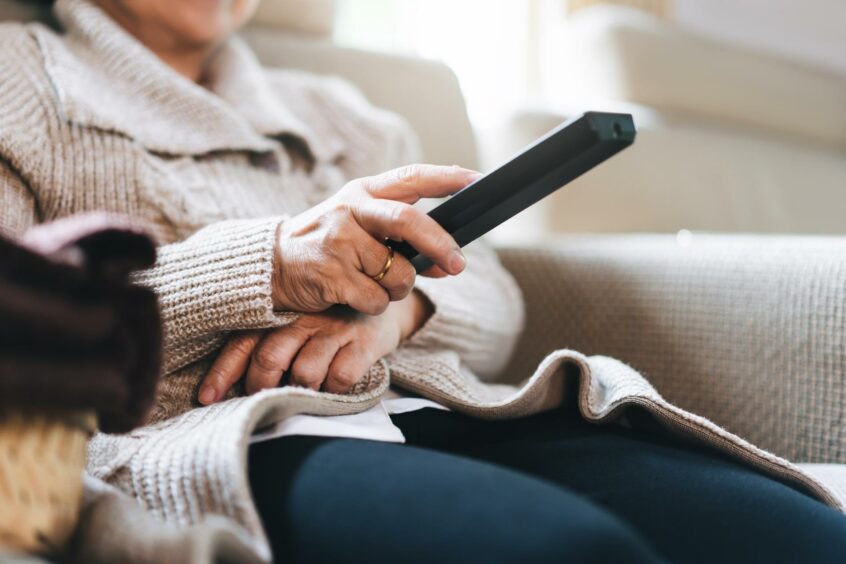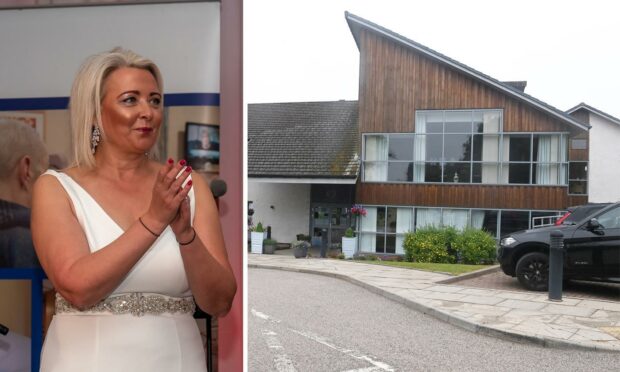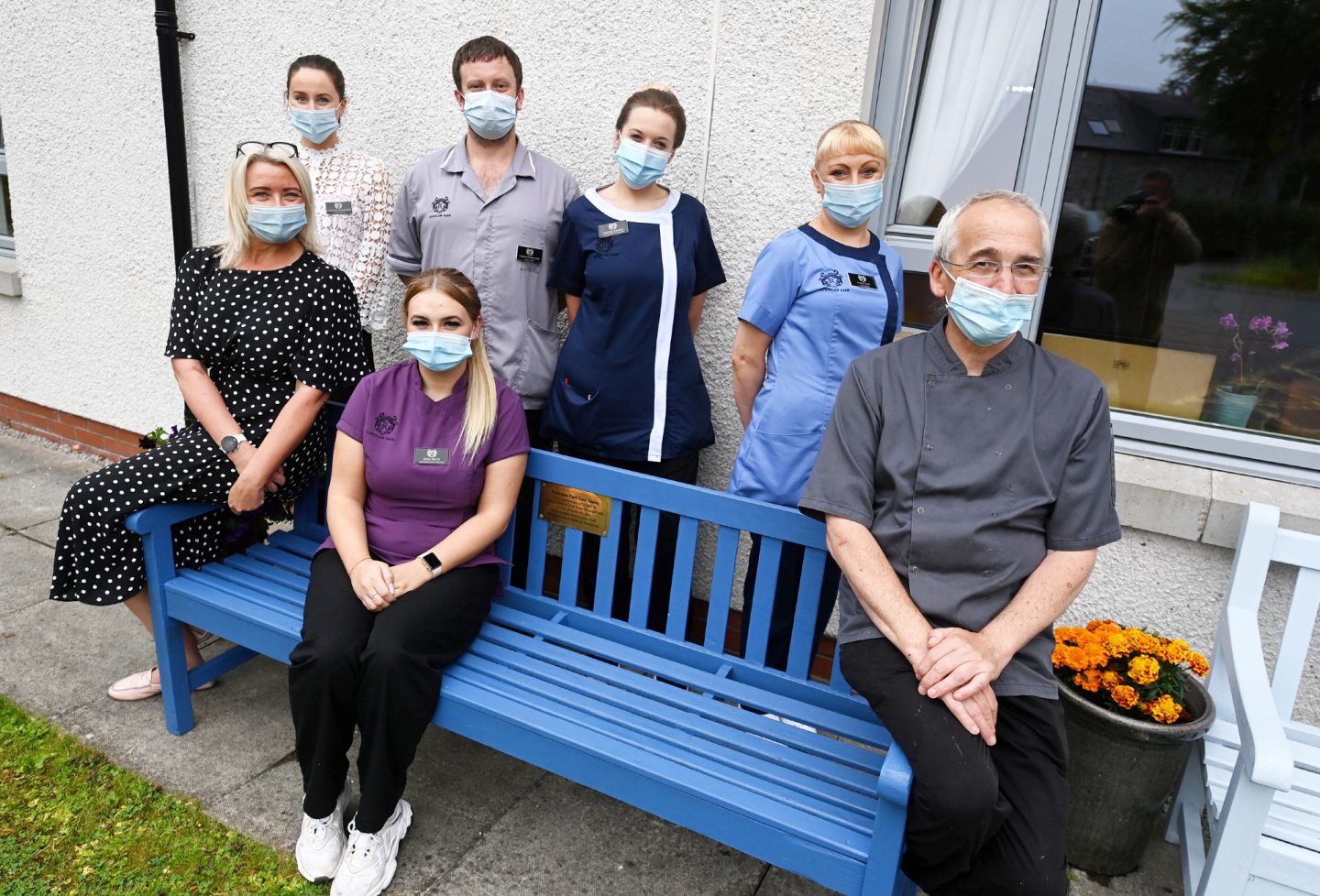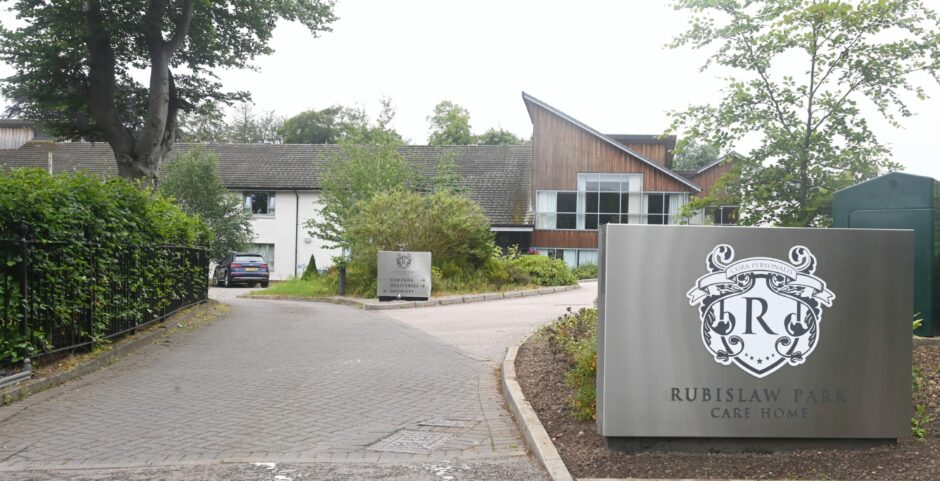The onset of the Covid pandemic changed the way a lot of people had to work – including care home manager Gayle Bain.
With health and care services across the country stretched to their limits, her team at Rubislaw Park were forced to adapt quickly to a raft of new and expanded roles.
Typically their residents had been elderly or frail, and in their later years, but the arrival of Covid-19 changed things dramatically.
“Everybody’s had to work outwith perhaps what their normal capacity would have been,” she said.
“We had been asked to look at placing residents that weren’t over the 65-year age criteria that we normally accept.
“Unfortunately for these poor people, there was a shortage of other provision and hospice care and a few residents were referred to us as their final place prior to dying.”
Death ‘shouldn’t be seen as a failing’
However, Gayle has emphasised that deaths in a care home shouldn’t automatically be seen as a “failing”.
Instead, situations like these give them the chance to let someone pass away in line with their wishes.
“We should give someone a really good, dignified, pain-free death,” she said.
“That should be seen as an achievement, it shouldn’t be seen as a failing.
“We speak about pregnancy and babies being born and say: ‘Oh, do you want to be in a midwife’s service, at home, or in a hospital?’
“We discuss how we come into this world, but not how we leave it.
“We need to almost lift that taboo and I think we are.
“In certain respects, Covid has given us a lot of valuable lessons and we’ve all had to realise that death can and will affect people in all walks and ages of life.”
Heartbreak of care home visiting ban
Gayle recalled the heartbreak of residents being unable to see their loved ones and how those without capacity couldn’t always comprehend why.
She said: “For the care sector, we had a no visiting policy. Care homes were completely locked down and that lasted for over a year.

“It was to ensure [residents’] safety but it was very difficult, especially for those with dementia who didn’t understand why it had happened.
“We had families who were very concerned for their loved ones, but our residents that did have capacity and were watching the news were very frightened for their children.
“We did support essential visiting, if anyone was deemed to be not very well and may be reaching the final days of their life, or if someone was really distressed.
“But again, that involved them in full PPE and minimising touch.
“Sometimes, to recognise that’s your son or daughter in a visor and mask on, was very difficult.”
How pandemic lessons are shaping the future
Gayle praised her team for going “above and beyond” during the period to ensure residents were treated well and their needs and wishes were met.
Staff from Rubislaw Park were also praised at this month’s National Care Home Awards 2021 for their palliative and end-of-life care.
She added: “The amount of trust our staff had to put in me – to make sure I was going to keep them and residents safe – was vast with ever-changing guidance.
“We’ve come halfway out the other side as a more cohesive team.
“I’ve worked with this team more than my family and as much as they’re my colleagues, I would classify them now as professional friends.
“The relationship and trust we’ve had in each other to come out of this and support each other, I believe we’ve become a really, really strong team.”
Read more:
Marie Curie manager tells of ‘rewarding’ role and appeals for more to join charity’s north-east team


